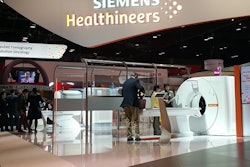Dear MRI Insider,
Young children can find MRI to be a very frightening experience. Vanderbilt Children's Hospital has made that process a lot less scary, however, thanks to its Patients Awake While Scanned (PAWS) program.
What is PAWS and how has it helped pediatric patients prepare for and complete their MR exam without sedation? As an MRI Insider, you get a first look at our coverage with our Insider Exclusive.
Elsewhere, the use of sedation among pediatric patients is on the rise, at least at one accountable care organization (ACO). A four-year survey of more than 18,000 MRI scans within the Partners for Kids ACO shows an increasing need to anesthetize pediatric patients undergoing MRI scans. Beyond the clinical implications, the findings run counter to an ACO's goal of cost containment.
The focus on pediatrics extends to neonates, and a study that suggests babies with normal renal function who receive iodine-based CT or gadolinium-based MRI contrast agents have no greater risk of renal toxicity than those not receiving contrast. The results are especially important given the recent concerns about lingering traces of gadolinium found in brain tissue long after administration.
The European Medicines Agency (EMA) also has expressed its concerns over gadolinium contrast by approving recommendations from its Pharmacovigilance Risk Assessment Committee that some linear gadolinium contrast agents be restricted and others pulled from the market. While the EMA conceded there is "currently no evidence that gadolinium deposition in the brain has caused any harm to patients," the agency recommended restrictions for some intravenous linear agents to prevent any risks that may be associated with gadolinium brain deposition.
And, finally, Canadian researchers are reporting early success in developing a novel T2-based MRI technique that uses water content in prostate tissue to detect and grade cancer. In a comparison with several other MRI parameters, luminal water fraction -- the measurement of water distribution within tissue -- was the most accurate factor in diagnosing and grading prostate cancer. Perhaps most importantly, the MRI technique does not require a contrast agent.
Make a visit to the MRI Community on AuntMinnie.com part of your daily routine for the latest news and groundbreaking research from around the world.




















